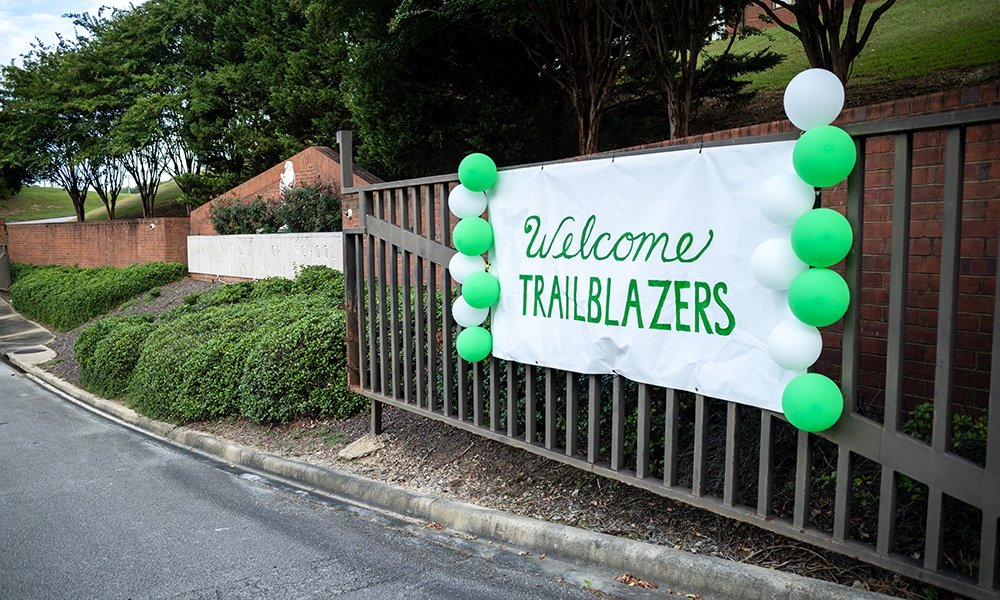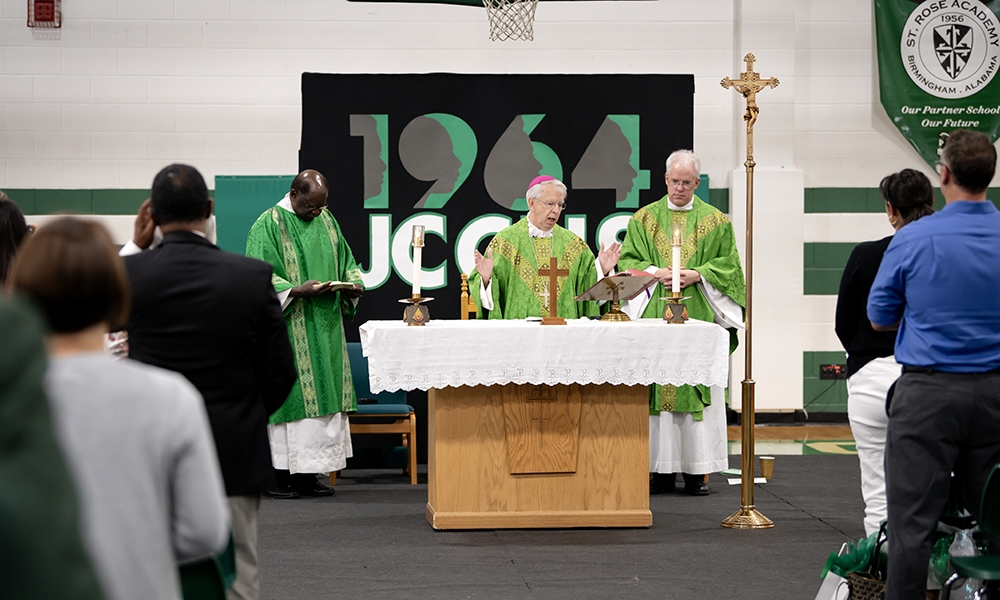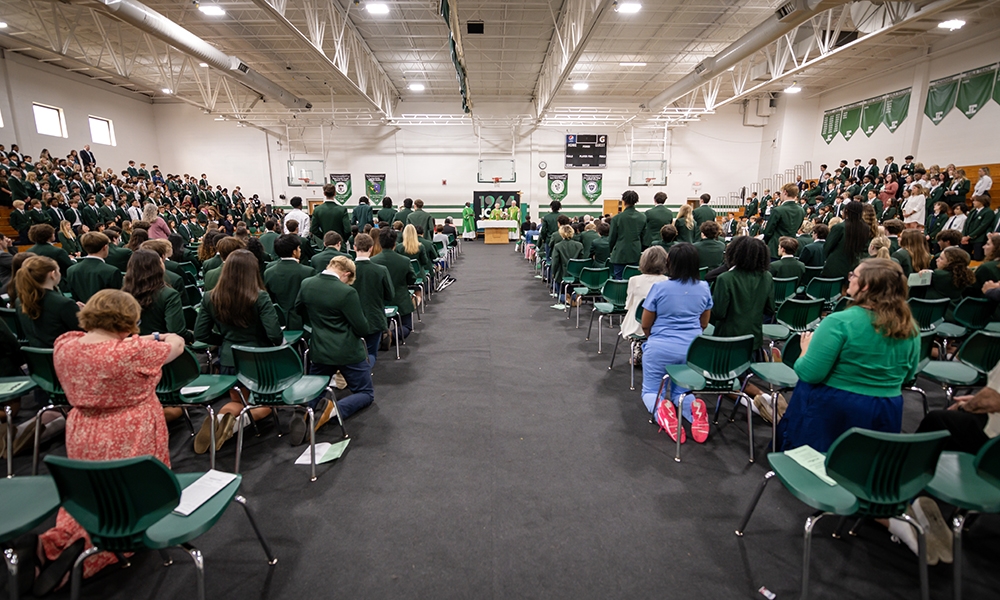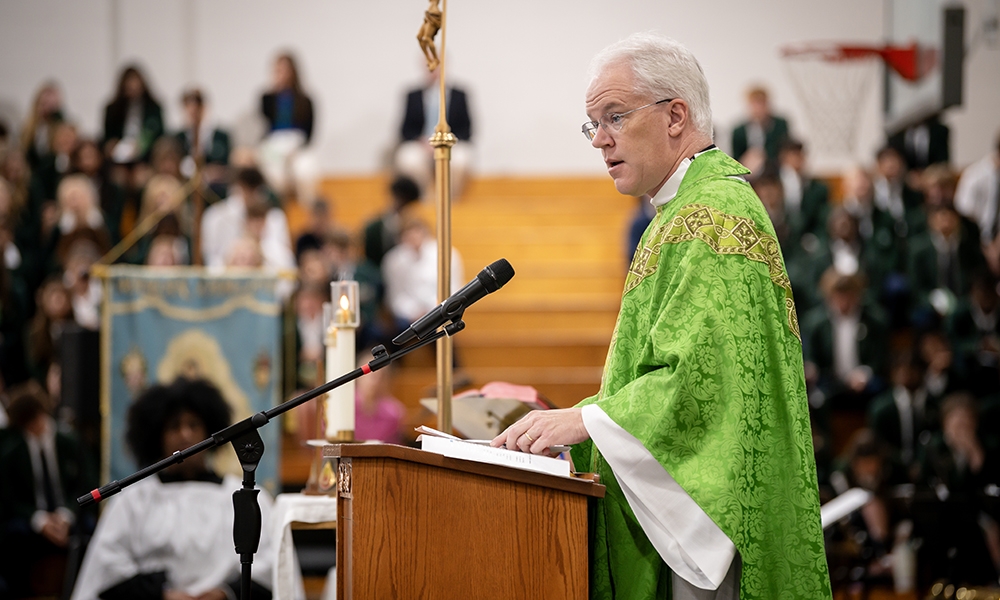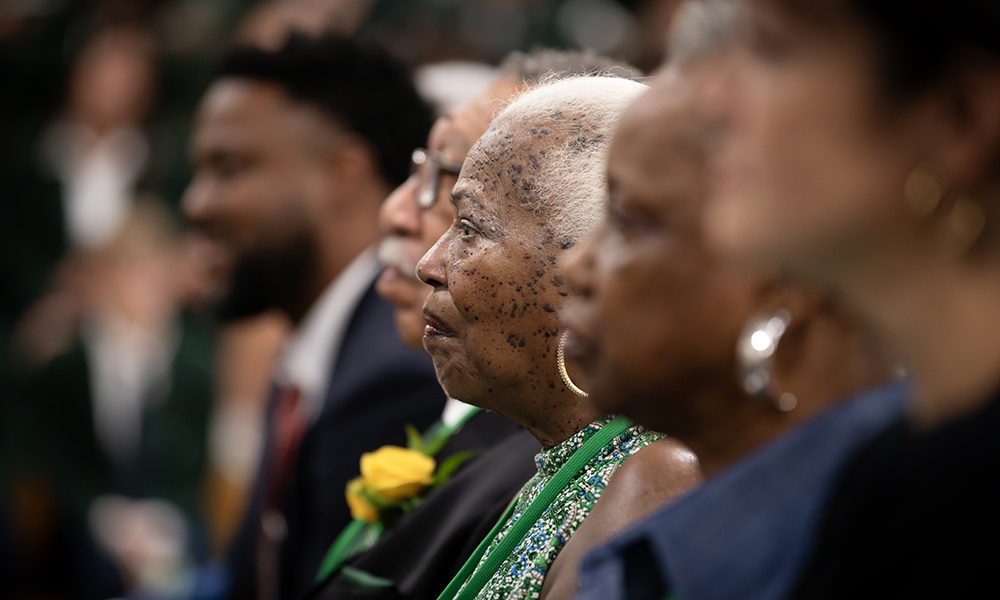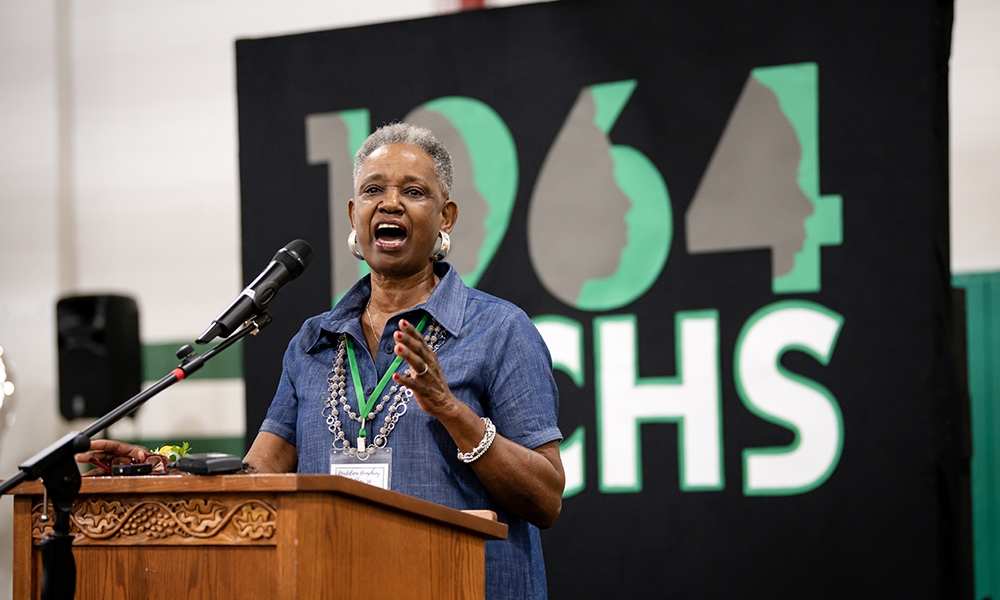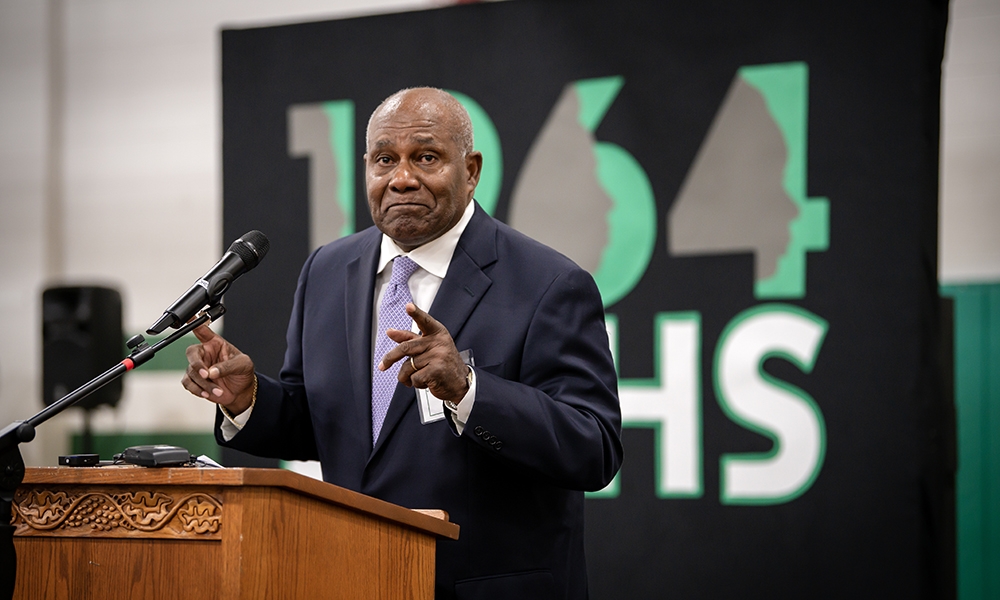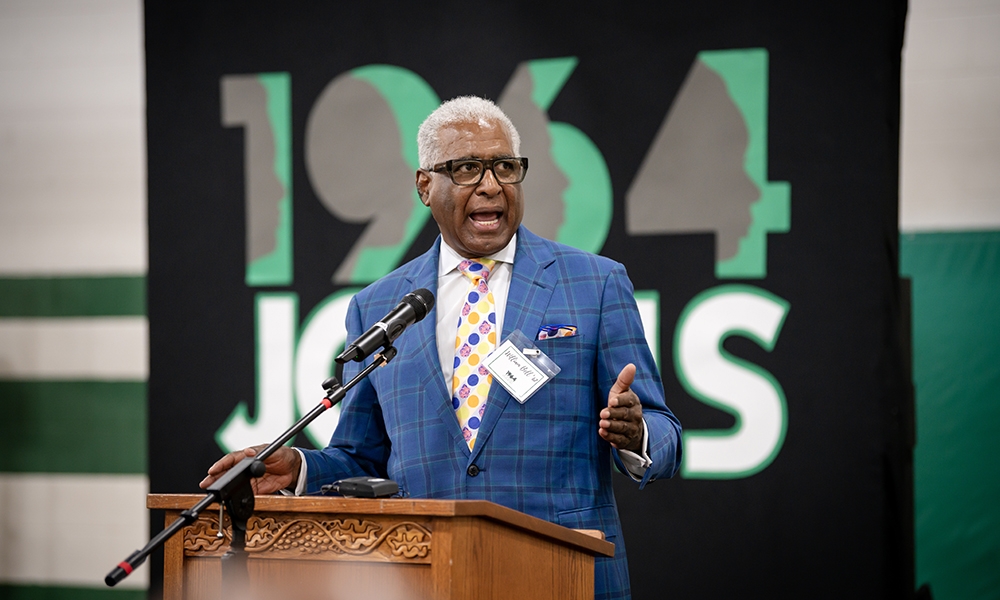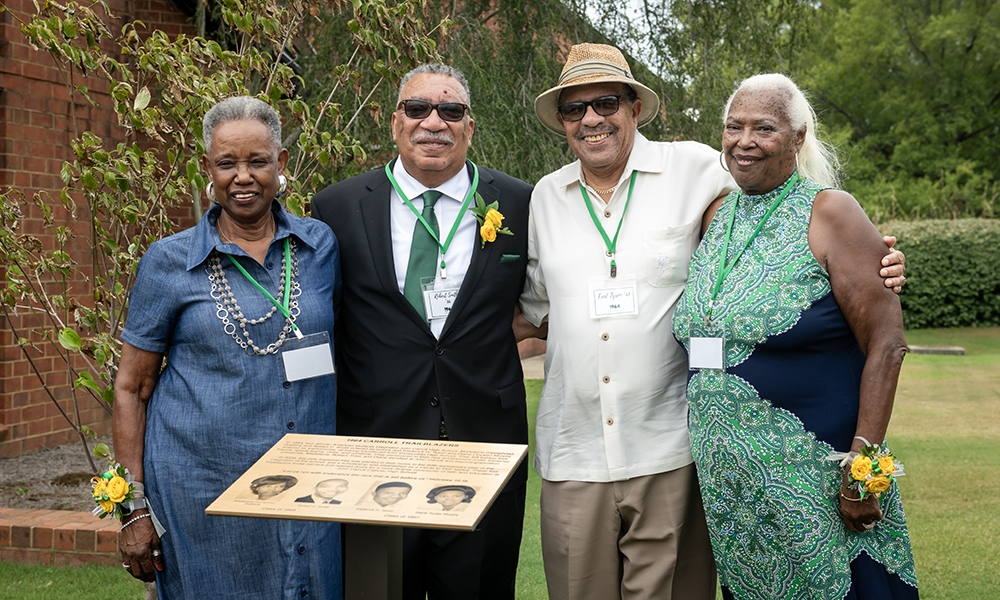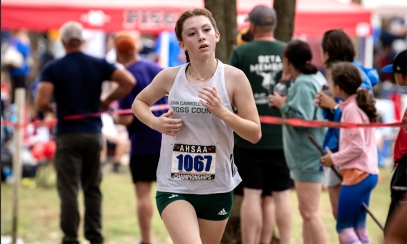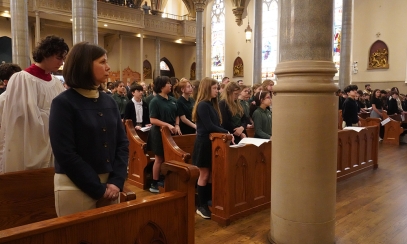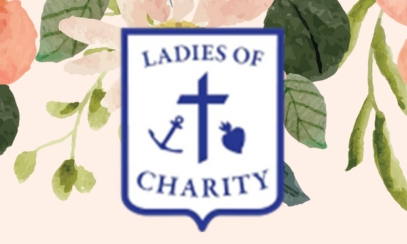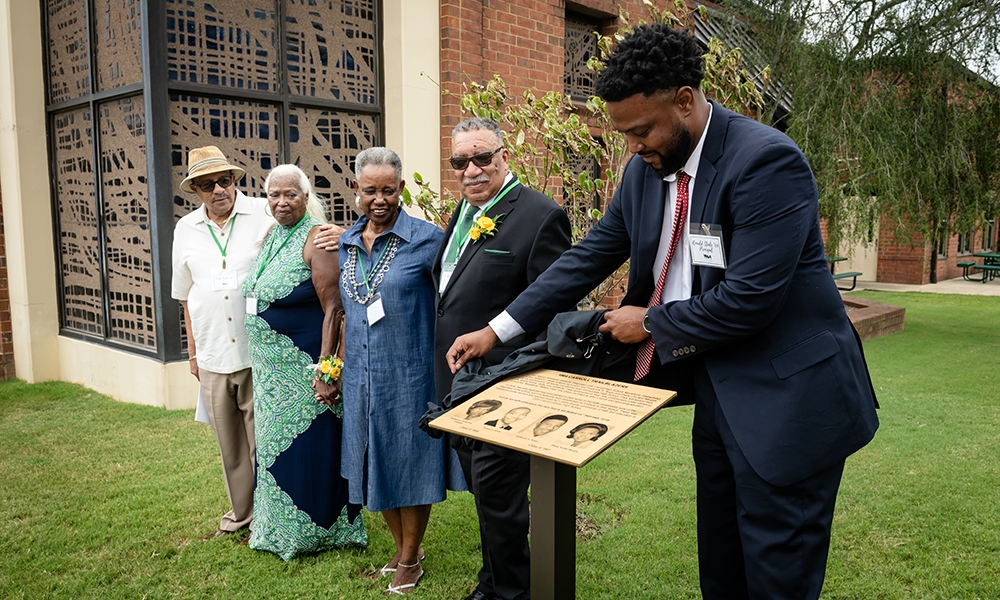
John Carroll Catholic honors ‘trailblazers’
On Sept. 1, 1964, Madeliene Humphrey Dobbins, Robert C. Smith, Frederick H. Tyson, and Diane Tucker Murphy stepped through the doors of the original Highland Avenue campus of John Carroll High School as the first black students to attend the school, and on Sept. 5, 2024, the John Carroll Catholic family welcomed back those four trailblazing individuals who, 60 years ago, paved the way for countless others.
The day began with Mass celebrated by Archbishop Joseph Marino, a 1971 John Carroll graduate, and concelebrated by the school’s president, Father Jon Chalmers. Deacon Doug Moorer from the school’s Class of 1968 assisted during the Mass.
Sitting in the front row were the trailblazers alongside other notable John Carroll graduates, including former Birmingham Mayor William Bell, Thom Gossom, John Carroll Catholic Principal Ronald Steele, and Amy Peterson.
During the homily, Father Chalmers remarked, “We honor the trailblazers who crossed a chasm in our common life and led the way for countless more. Our school and our community are richer for their courage, and we thank them for being here 60 years ago and for being here now.” Father Chalmers continued by explaining that the turmoil of the time, and quite frankly of today, stems from the effort to reconcile “what is and what ought to be.” He pointed out, “So much of our public discourse, whether 250 years ago, 60 years ago, or even today, is theological, relating to our understanding of Who God is and what God wants us to be.”
As he continued, he described how human nature lends itself to a closed “circle of self,” meaning we hyperfocus on identities such as race, political party, or religion. He told the students: “The question of who I am must always pivot to Whose I am. Who I am refers us back to ourselves; Whose I am points us to God.”
Even though we still live in the midst of what is and what ought to be, he encouraged those present to emulate the courage of the four trailblazers and recommit “to cross boundaries, to seek the common good, to realize the beloved community with courage and care, and to remember that in Christ, God gives us the capacities in our head and our hearts to bear all things in faith, hope, and love.”
Before the final blessing, the archbishop arose and addressed the student body. Recalling a hot Sunday morning in May of 1964, he shared the story of him sitting on the altar as a 10-year-old altar server at St. Joseph Catholic Church in Ensley. He noted, “I remember it as if it were yesterday.”
On what seemed to be an ordinary Sunday morning, the young Marino and the entire congregation listened as Msgr. Lawrence Donazzan, then pastor of St. Joseph’s, read the short, yet historic, pastoral letter written by Archbishop Thomas J. Toolen: “After much prayer, consultation and advice, we have decided to integrate all the schools of our diocese in September. I know this will not meet with the approval of many of our people, but in justice and charity, this must be done. I ask all our people to accept this decision as best for God and country. No matter what personal feelings are, the common good of all must come first. In the diocese, we have always tried to give our Negro people everything that we have given to our white people, especially in the way of education. The procedure for admission will be determined by the pastors and by Rt. Rev. J. Edwin Stuardi, superintendent of schools. Again, I ask all of our people to accept this regulation as best for God and country.”
For the young future archbishop, the sentiment that stuck in his mind was that of doing what “must be done” for the sake of “justice and charity.” Looking back at the life of the larger than life Toolen, Archbishop Marino observed, “Archbishop Toolen was a very big man … and people always said he had a big body and a big heart. This letter proves his love for the Church.” As the archbishop concluded, he spoke directly to the students, pointing out that they and their relationships with each other are the “fruits” of the revered former shepherd’s courageous letter.
Following Mass, the celebration continued with the John Carroll Catholic High School’s Honors Mixed Ensemble performing “Lift Every Voice and Sing,” directed by Maria Wilson. Amy Peterson O’Brien, who was instrumental in the trailblazer recognition efforts, introduced the first keynote speaker, John Carroll 1967 graduate and former Birmingham Mayor William Bell.
Looking out into the rows of students listening, the former mayor emphasized the power of a John Carroll Catholic education. Undoubtedly, the families of the four trailblazers being honored had trepidation about their beloved children being thrust into a situation of uncertainty and challenge, but he explained that the parents were able to see not only the benefit to their children but also the contribution to the greater good. He continued by noting that each and every student present continues that legacy. “When you walk into your classrooms, when you're given the opportunity to take on the challenges of studying and learning, know that you're being prepared for that cruel world that's out there.” He asked, “Are you going to be a ray of hope or are you going to be a ray of despair?” Concluding his remarks, former Mayor Bell told the high schoolers to take the challenge and be “a ray of hope with the tools that are being given to you,” for that would be the greatest honor they could give the four trailblazers. “Use your talents,” he instructed, “to be a better person, to make a better city, to make a better state, a better country and a better world.”
Before the next keynote speaker, the John Carroll Catholic Jazz Band performed a rousing rendition of the jazz standard “Tuxedo Junction.”
Author, actor, writer, producer, and athlete Thom Gossom from the Class of 1970 then stood up to address the crowd. “When you were first,” he stated, “you had to be a good example to others for those who would come behind you. Because when you were first, you were paving the way for those coming behind you.” He thanked the trailblazers and the John Carroll administration of the time for their bravery. As he concluded his address, he spoke directly to the students, using terms of his profession. “Act one is the situation. … In act two, the protagonist has to solve the problem. … Act three is the happy ending or the tragic ending.” In life, he continued, we are given the opportunity to write the “film of our lives.” He implored the students to write their own film, explaining, “Your film will be determined by what you do with your actions, your decisions, and what you do with your lives.” Poignantly, he asked, “In your act three, will you have written yourself a happy ending or will it be a tragedy?” The ending, he said, is “strictly up to you.”
The final keynote speaker was Madeliene Humphrey Dobbins, who spoke on behalf of her fellow trailblazers. She shared that the group collaboratively gave themselves the title “trailblazers.” The significance of the moniker being that they truly were pioneers, and back in 1964, to be a pioneer or pathfinder, one had to be obedient, courageous, perseverant, patient, and resilient.
She also reflected on their time at John Carroll as an opportunity to share their culture. In turn, John Carroll gave them a “wonderful and exceptional education” that laid the foundation of their future endeavors. In all, she said the integration of John Carroll “provided a learning opportunity for the entire community.” “We were able to get through the barriers and dismiss some of our old stereotypes and prejudices,” she commented. “We all took the opportunity to grow.”
With the conclusion of Dobbins’ keynote, Birmingham City Councilor Wardine Towers Alexander presented each trailblazer with a resolution, acknowledging the anniversary and their contribution to the city of Birmingham.
The celebration concluded with Principal Steele unveiling a commemorative plaque on the school grounds next to the chapel. The plaque reads in part: “In 2024, this pink dogwood tree was planted in their honor in the 60th anniversary year of the integration of the school, and a scholarship was established as a tribute to their legacy. These four trailblazers broke barriers and opened doors for a more diverse community of faith and education at John Carroll Catholic High School."
The endowed scholarship mentioned on the plaque, which is called the Trailblazers Award, will be given annually to a graduating John Carroll Catholic senior. To learn more, please visit jcchs.org.

